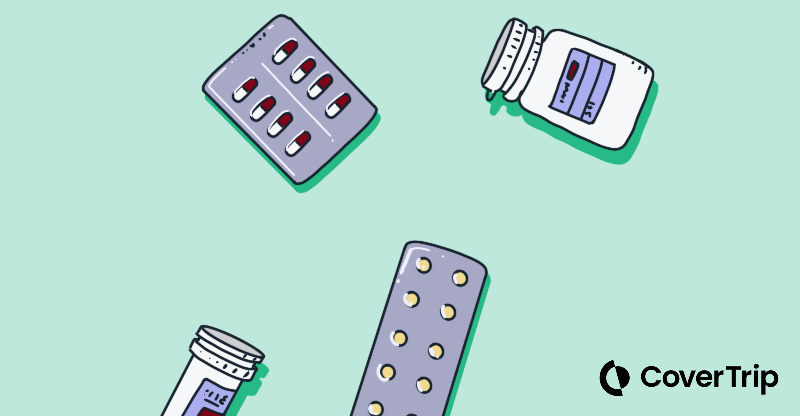How to Safely Navigate Security with Medication
16 March 2025
Medicine is complicated, and traveling with it can be a challenge both coming and going! Not only are you trying to juggle time zones and keep your health on track, but you must also navigate all the legal systems governing medications.
For example, did you know:
- ADHD medications containing amphetamines (like Adderall) are strictly prohibited in Japan
- CBD products of any kind are prohibited, even if medically prescribed, in the United Arab Emirates
- Thailand allows only 30 days’ worth of any medicine, and travelers must carry a doctor’s letter for each
From proper documentation to packing strategies, knowing the right steps to take before you leave can save you from delays, confiscation of necessary medications, or even legal issues abroad.
This guide covers everything you need to know about traveling with medications, helping you focus on enjoying your destination rather than stressing about your prescriptions.

Before You Leave: Essential Preparation Steps
Many travelers carry medication to treat acute or chronic health problems, and it’s important to know that each country has its laws regarding medication.
Some medicines available only by prescription may be purchased over the counter and vice versa.
The risk is that there can be serious consequences if you violate the laws of your destination, ranging from losing your medication all the way to jail time.
Once you know your destination, it’s critical to review all your medicines (prescription and over-the-counter) and know what you can and cannot take into the country.
To research, use official sources like the
33(9.9%) and/or your doctor’s office.
Key items to research include:
- Legality of specific medications
- Potential quantity restrictions
- Requirements for documentation and/or special permits
And don’t forget to look up the rules for layover countries!
If a needed medication is not allowed where you plan to travel, contact your doctor to see if there is an alternative you can take for the trip.
Ask for documentation, if necessary
According to your research, if necessary, ask your doctor for a letter explaining the medication. Most doctors have a template for this, but be sure that it includes their contact information.
Once you have the document, make a copy of it and store it with your digital travel documents (like your passport).
Take a picture of the letter on your phone as a handy backup.
Getting ready to go: packing your medications properly
When it’s time to pack, your focus is on ensuring compliance with security regulations, so you may want to start this process a week or so before your trip.
Warning! Security officers may need to verify labels, so if you use an organizer system (I use tiny plastic bags for each day’s vitamins and pills), you may be asked to show the original prescription bottles.
- Start with a clear TSA-friendly bag that’s easily accessible during screening.
- Use separate sealed containers for each of the different medications: one for daily prescriptions and another for as-needed medicines.
- Put liquid medications in a separate container.
Temperature-sensitive medications like insulin need to stay cool but not frozen, so you’ll need an insulated medication travel case.
Consider separating your supply into separate bags, so you have what you need during the flight (pack extra in case of a delay) and what you need for the trip. This will lighten your load and (potentially) speed up the security screening process.
Pro tip: Consider making a copy of all the prescription labels in case you need an emergency refill while you’re traveling.
At security: how to manage screening
The key here is to be proactive and understand the process.
As you approach the security officer (TSA or customs), let that person know you’re carrying prescription medicine. While you’re not required to declare medications, doing so may prevent misunderstanding, especially if you’re carrying liquids, ice packs, or medical devices.
Place the bags containing medication and a doctor’s note in a separate bin, and don’t be surprised if you are asked to do additional screening—this is routine.
If you use a medical device like a glucose monitor, you have the right to request a personal screening rather than going through the scanner. Advocate for yourself calmly.
Remember that screening processes can take extra time, so arrive a little earlier to allow for that extra time.
Related topics
- A 6-Step Checklist for Traveling with Medications
- What’s in your Travel Medical Kit?
Damian Tysdal is the founder of CoverTrip, and is a licensed agent for travel insurance (MA 1883287). He believes travel insurance should be easier to understand, and started the first travel insurance blog in 2006.
